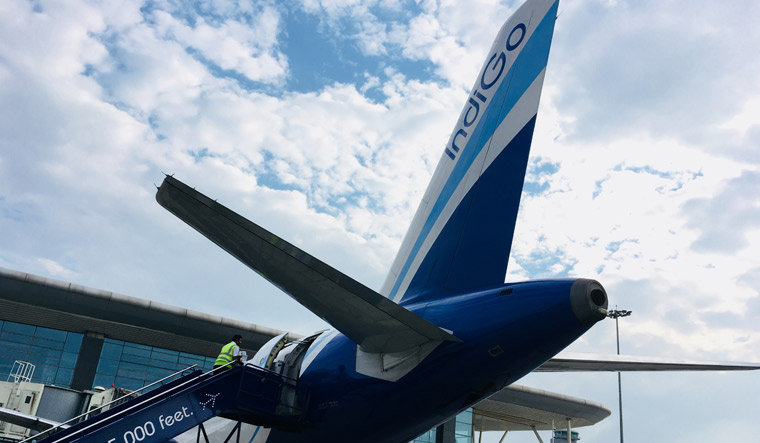The board of InterGlobe Aviation has approved a new policy on related party transactions, sources said on Wednesday, amid ongoing feud between the company's co-promoters over governance issues.
The differences between co-promoters—Rahul Bhatia and Rakesh Gangwal—came into the open earlier this month after Gangwal wrote a letter to markets regulator Sebi flagging concerns about alleged corporate governance lapses at the company. The allegations have been refuted by Bhatia camp.
Sources said the policy on related party transactions (RPTs) was approved by the board unanimously. The company's board—which has six members, including Gangwal and Bhatia—met for two days on July 19 and 20.
Under the new policy, external advice would be sought for RPTs that are worth over Rs 2 crore and bidding process would be mandatory for any such contracts, the sources said. Further, any changes in RPTs would have to be unanimously approved by the company's independent directors, they added.
RPTs involving Bhatia's InterGlobe Enterprises was one of the issues flagged by Gangwal in his letter. A decision has also been taken to expand the strength of the board to up to 10 members, including four independent directors.
Sources said Bhatia group would nominate five members to the board, including the Chief Executive Officer.
InterGlobe Aviation is the parent of the country's largest airline IndiGo. The sources claimed the issues between the co-promoters stand resolved and the the company is on growth path.
also read
- Indigo flight from Ayodhya to Delhi diverted to Chandigarh, lands 'with 1-2 minutes of fuel left'
- IndiGo to start direct flight from Bengaluru to Lakshadweep from March 31
- IndiGo fliers cheer for Sachin Tendulkar, foreign couple's reaction caught on camera
- IndiGo plane misses taxiway at Delhi airport, blocks runway for over 15 minutes
While acknowledging that what has happened was unfortunate, the sources exuded confidence that the company would emerge stronger.
The board of directors has decided to amend the Articles of Association (AoA) for expanding the board by up to a maximum of 10 members, including four independent directors, the company said in a regulatory filing on Sunday. "The said amendment of the articles will be subject to approval of the shareholders at the forthcoming annual general meeting of the company," it had said.
Generally, an AoA pertains to internal rules governing a company.



